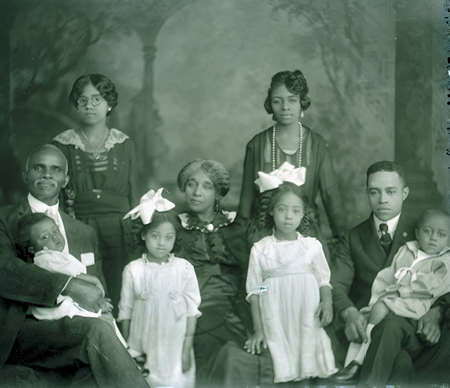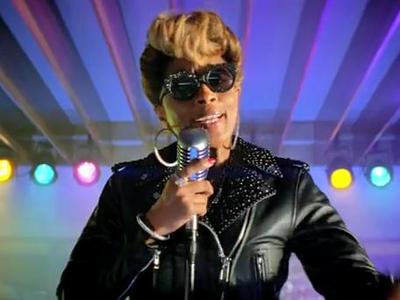 “Whoever controls the images, controls your self-esteem, self-respect, and self-development. Whoever controls the history, controls the vision.” – Dr. Leonard Jeffries
“Whoever controls the images, controls your self-esteem, self-respect, and self-development. Whoever controls the history, controls the vision.” – Dr. Leonard Jeffries
It seems that very few people remember how African American History Month even began. It has gotten so bad that many of us think we were “bamboozled” by being given the shortest month. Despite the fact it was we who chose the month and by “we” I mean Dr. Carter G. Woodson, who started it as Negro History Week in 1926. Woodson chose that week because at the time it encompassed the birthdays of two men whom he felt greatly impacted the African American population, Fredrick Douglass and Abraham Lincoln.
At the school I attended as a child, of which had a 100% African Diaspora student body with 99% African American faculty and headed (and owned) by an African American principal, we celebrated Black History Month every day. My kindergarten teacher was a 6’3, 225-pound African American male member of Omega Psi Phi. I’ll let you wrap your mind around the rarity of that for a moment. From the moment you walked into the school there were pictures up around the room of great African Diaspora citizens and their stories, as we awaited our teacher to come receive us for the day. Your curiosity as a child would beckon you to see who these great people were on the wall. The books in the room were for all I can remember always with us as African American students in mind. To see that which looked like us. Amazingly, this was just the recreation room before the day’s lessons even started. Once in class every subject we learned had a culturally relevant historical component attached to it. If we were learning about math, we would also learn about Benjamin Banneker. If we were learning about science, we learned about Ron McNair. I’ll never forget that on January 28, 1986 we stopped our day to watch the launch of the Space Shuttle Challenger because Astronaut McNair was going to be on that flight. They wanted to us to see someone that looked like us reach into the heavens. Despite the tragedy of that day the richness of that moment and its history was built into the curriculum with every subject we learned. It made all the difference in the world to us as children.
These are the benefits and things we gave up when we decided to desegregate without demanding that more than just our ability to go to school with European Americans but that our teachers, principals, administrators, and the right to dictate the curriculum be included as well. Instead we have seen the watering down of our history decade after decade with those who of us intensely guarded about it viewed as “militant” now instead of just proud and knowledgeable of whom we are.
In our own community African American history month has allowed almost a laziness thought to our history. Kids now assuming they know about being African American simply because they are African American. They are a glass with no water. I even asked one of my daughter’s friends one time why Martin Luther King, Jr. was killed and his reply “because he tried to run for president”. At the time they were in middle school and the young man’s reply broke my heart. His parents had failed him, his community had failed him, and his school had failed him. The sad thing for me once I left my initial elementary school was that I would then be attending majority (and by majority I mean 95% and up European American student bodies) European American schools where the most exposure to African American history I was going to get was Martin Luther King, Jr. and only during Black History Month and never would it be the militant Martin that talked about African American self-sufficiency. Over the years Martin was watered down and filtered to present the image they wanted me to have of who Martin Luther King, Jr. was. I have a dream speech became the beginning and end of who Martin was in a sad way. Last year my daughter and niece, both in high school, said their schools did absolutely nothing for African American history month. Thankfully, I had a mother growing up who worked at an HBCU campus, where my initial elementary was located, and came from a very active family who tirelessly exposed us our history and made us attend events on the HBCU campus because all of the events had us in them. Any event at a museum that was about our history they made sure we attended if they could. My father made me watch, much to my dismay, Mississippi Burning while I was still in elementary. However, most children today do not have parents who care this much about teaching their child their history. Most in fact would rather not even acknowledge that history. In some subconscious hope of that child knowing a color blind world to that child’s detriment. Either that or they are so benighted themselves to their own history that they can’t teach what they do not know nor know its value.
Our naivety at times also to believe that one day European Americans will be willing to share the spoils of America prosperity is both unfounded and dangerous. I have always said and continue to say that no group in power in the history of mankind has ever willingly conceded some of its power so that another group could rise – not even thirty centuries of African dynasties or Asian dynasties willingly ceded their power. This flies in the face against self-interest and group interest, the foundation of all animal behavior. Nor do I expect as brother Huey Newton once said “I do not expect white media to create positive black (male) images.” We have seen the history of European Americans and Europeans in Africa, the Caribbean, and Africa and their changing of that history as its presented to the people they conquer. There is some illogic and irrational thought in our mind that seeks to believe they would present our history in a “fair and balanced” manner instead of us being the one to do it.
Almost all African American, Africana, and African Diaspora studies are housed at Historically White Colleges & Universities (HWCUs) which means they are the vessels through which our stories are told, written, and passed along to generation after generation. No, just having African American professors at an HWCU does not change institutional ownership. That is simply labor to ownership in the way an African American athlete is to their European American owner who profits most from their skill and is only around so long as that labor is staying within the ownership protocol. Let me also be clear that this is not an African Diaspora vs. European Diaspora issue. The rise of the Asian Diaspora if they were in charge of our history would fair no different. It is the lion who must tell the lion’s story. Not the hunter, not the tiger, but the lion. Others can tell your story from their point of view but only the lion knows what the lion feels and went through as the hunter and hunted. Without a move to ownership of our history institutionally we will continue to see a watered down and irrelevance given to who we are as a people.Glasses empty of their water.
Mr. Foster is the Interim Executive Director of HBCU Endowment Foundation, sits on the board of directors at the Center for HBCU Media Advocacy, & President of AK Companies, Inc. A former banker & financial analyst who earned his bachelor’s degree in Economics & Finance from Virginia State University as well his master’s degree in Community Development & Urban Planning from Prairie View A&M University. Publishing research on the agriculture economics of food waste, full-time contributor at HBCU Money, and guest contributor for a number of African American media outlets.
 In this episode KC and Chris are joined by KJ from the Welcome 2 The Village podcast. They discuss the importance of family history and why our people don’t want to talk about it.
In this episode KC and Chris are joined by KJ from the Welcome 2 The Village podcast. They discuss the importance of family history and why our people don’t want to talk about it.


















